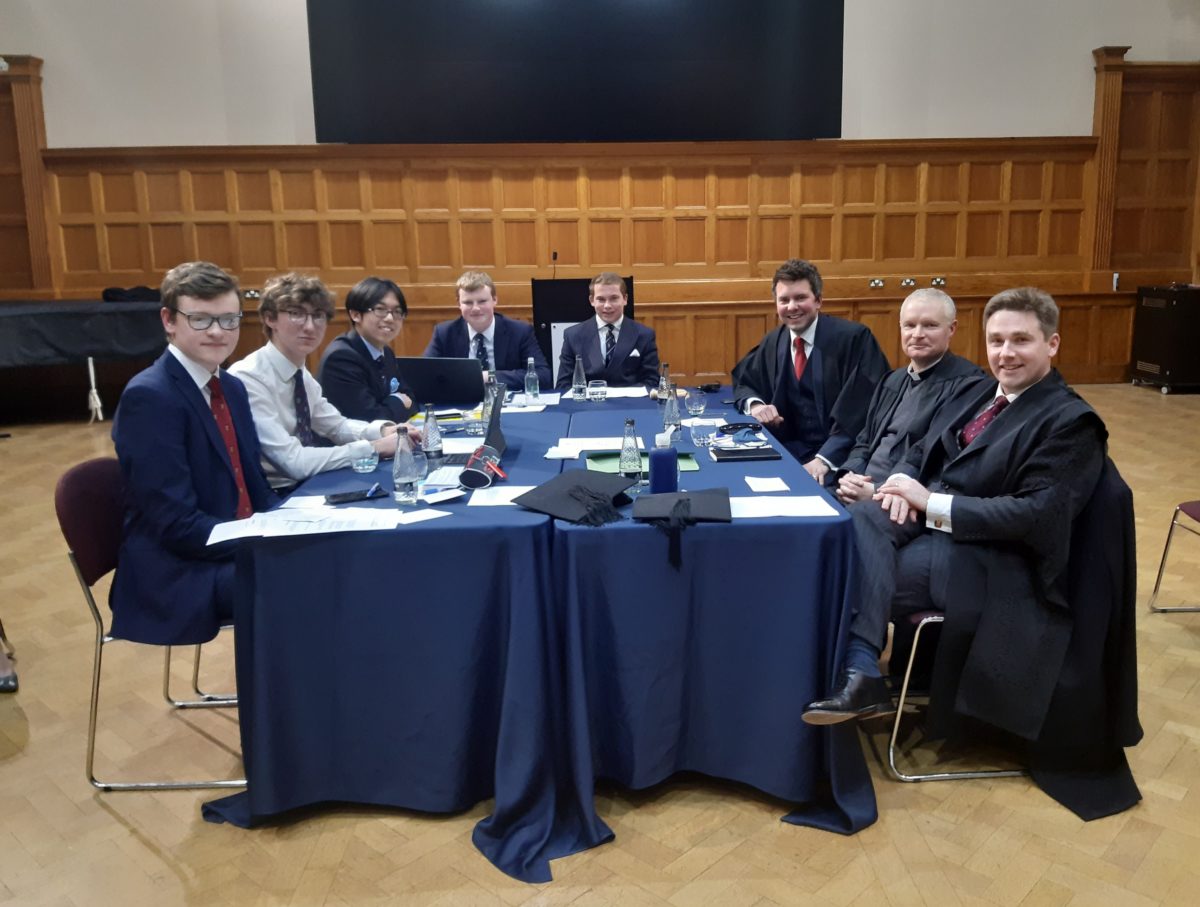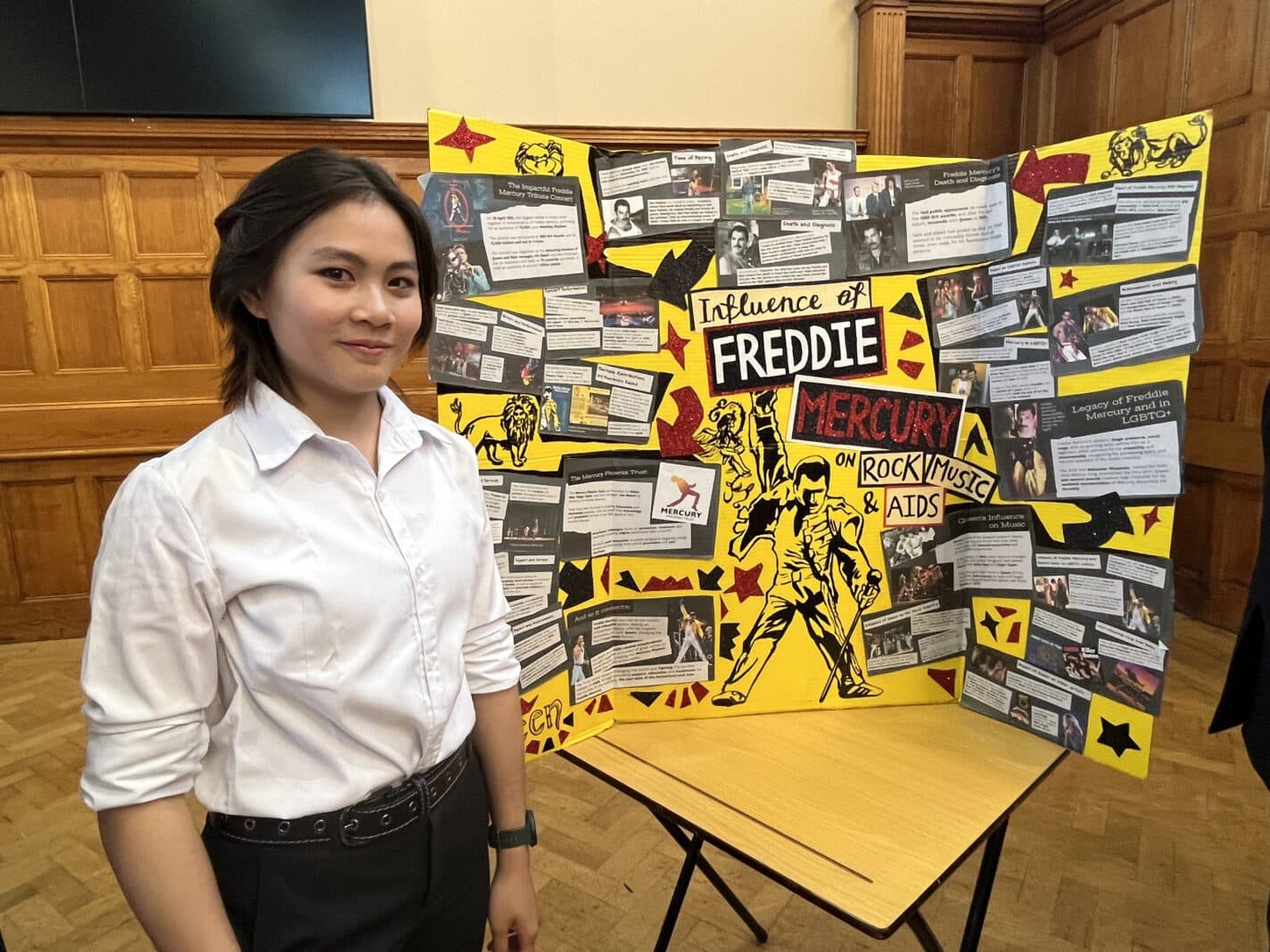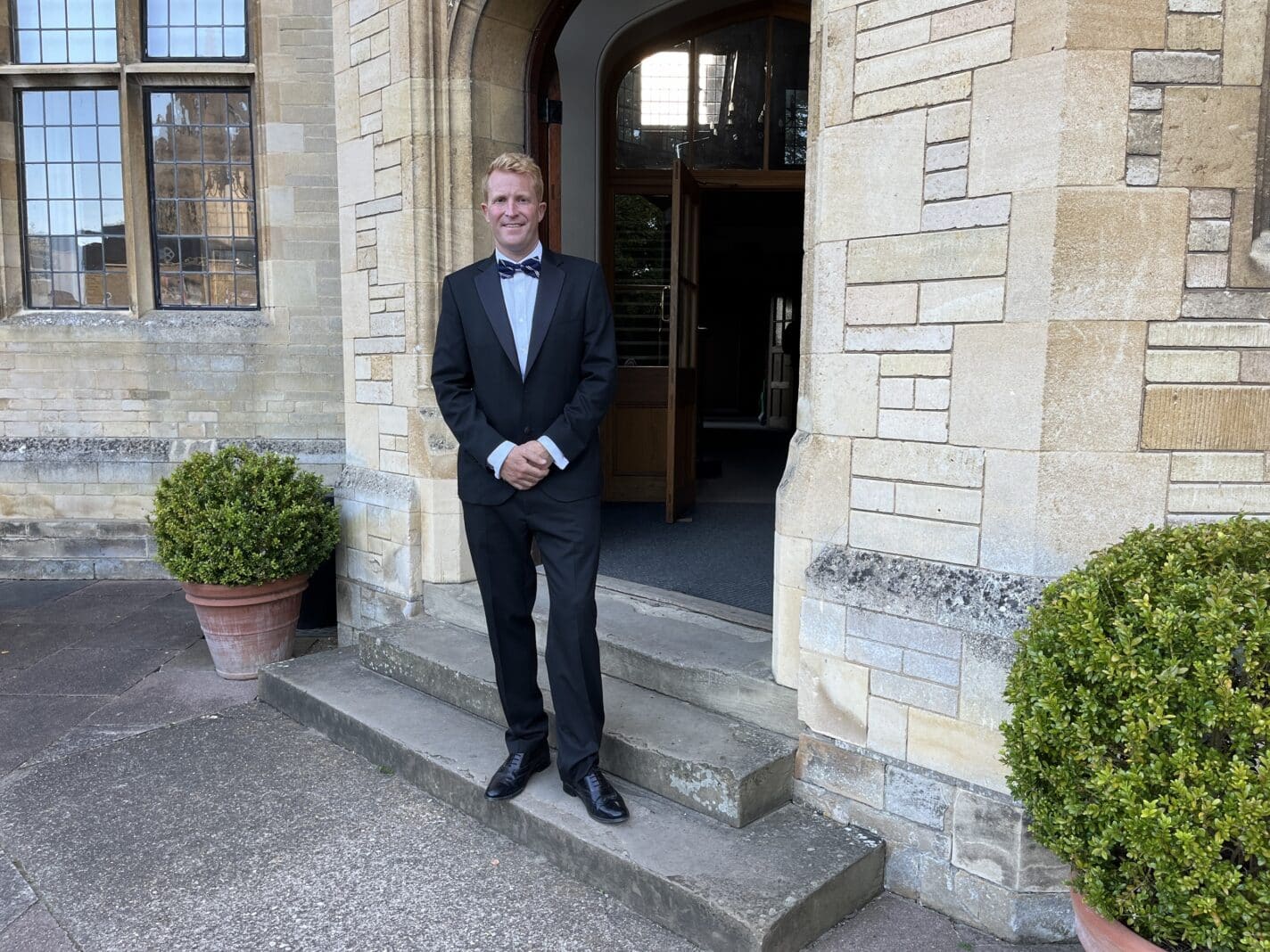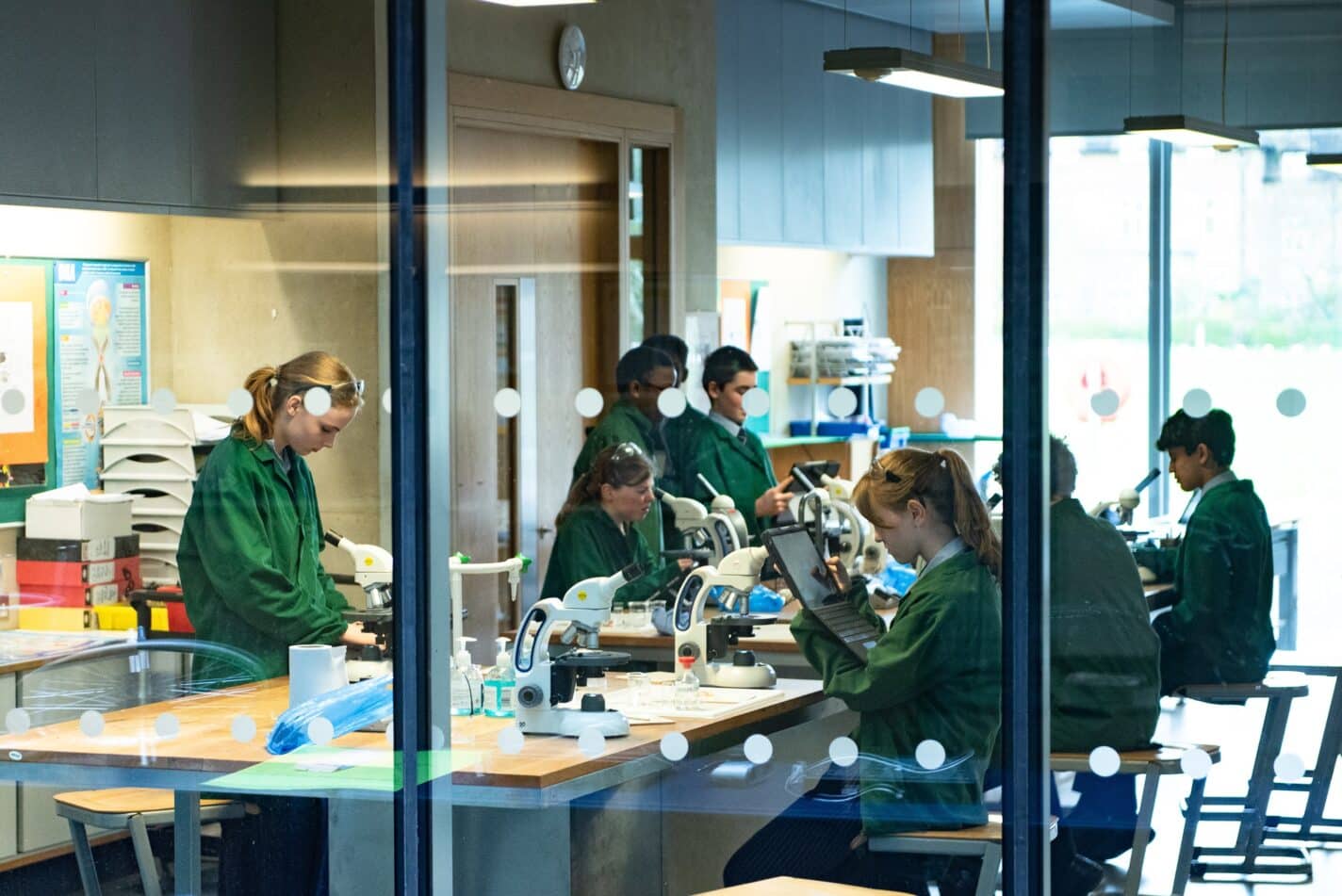On Friday evening, an audience in the Great Hall had the rare chance to hear a team of pupils debate their teachers at the Debating Society’s Theology, Philosophy and Religion Debate.
Arguing for the proposition “This House believes that secular societies are more compassionate”, Max (Ldr), Ossian (C) and Thomas (L) faced teachers who opposed the motion – Mr Jones, Rev Cunningham, Mr Gunson. Charles (G) and Robert (B) chaired and took minutes. The debate was conducted under the rules of the English-Speaking Union’s Schools’ Mace competition.

The pupils said they did not oppose religion but questioned whether it should be a framework for society. They pointed to examples of intolerant actions justified and commanded by texts written one thousand years ago, resulting in religious societies that are “archaic – stale, male and backwards”. They argued that if compassion is exhibited, it is an action made in obedience to religious commands; this does not necessarily mean the individual is more compassionate. They said that secular societies are agile and free-thinking and can adapt to societal changes more quickly, with less racism or ethnocentricity. In a secular society, compassion is not dependent on a “diktat” that must be obeyed. Compassion is good in itself in a secular society; it is a characteristic of the human condition.
In opposing the motion, the teachers said that while religious societies have many faults, their work over the centuries has aimed to create a fairer and more compassionate world. They pointed to the great societal progress that has been made with the support of religious institutions and the leadership of religious heroes, such as the advancement of education for the poor and the abolition of the slave trade. The welfare state derives its compassionate principles from those established by religious values. Religious societies have long established mechanisms where compassion and grace are embedded, and which bring people together. No one need be alone in a religious society. They argued that in secular societies, compassion is swayed by the vote, rather than the good of society, and merely builds on the established work of religious societies, offering nothing new.
There were lots of questions from the audience. One pupil questioned how to weigh moral duty, suggesting that medieval monks had felt it their religious duty to help the poor, while medieval knights had felt it their religious duty to kill Muslims and Jews.
In adjudication, Mrs Deane, Mrs Wells and Mrs Kerr-Dineen commended the extraordinary quality of the debate for its strength and elegance, and noted the exceptional standard of the questions from the audience. Their decision favoured the proposition, which they said was argued with impressive teamwork that showed coherence and built to a crescendo that carried the motion.




